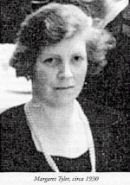Hale quotes an American doctor as saying, “During the late Civil War I used this plant for splenitis and so well satisfied have I been with the results that for six years I do not remember using anything else for enlarged spleen. I have used it in the worst cases I ever saw, from infancy to old age. I have yet to hear of its failure in a single case, however inveterate.”
Hale says “this is pretty strong and positive testimony, and the author full confirms my idea that a remedy which cures is homoeopathic always, for he further says:
“In chronic cases, when the organ is no longer tender, under the use of the tincture, even without friction, it soon becomes painful and tender, then sinks rapidly to its normal size, and so remains, the patient being no longer conscious of its presence.
“We see here a true homoeopathic aggravation, showing that the drug has a specific affinity for that organ. I advise you to use it when you meet with cases of ague-cake, so common in malarious districts.
“Dr. Carroll Dunham informs me that a physician of his acquaintance cured an enormous enlargement of the spleen by the use of this remedy.”
Dr. Oscar Hanson gives the therapeutics of Ceanothus.
“Chronic inflammation and hypertrophy of the spleen, pain in the whole left side, with violent dyspnoea. Persistent pains in hypochondrium, profuse menses and yellow leucorrhoea.”
Boger’s Synoptic Key, adds a little thereto: “Periodic neuralgias. Pain in left side, with dyspnoea, diarrhoea or leucorrhoea. Swelled spleen or liver. Worse cold weather; lying on left side. Complementary to Nat. mur.”
Clarke’s Dictionary also includes this valuable remedy in its wide range of medicaments.
You may say, “Ah! but whoever sees cases that need Ceanothus?” In the last ten days we have had to prescribe it twice: apparently splenic pains are not so rare as one might suppose.

